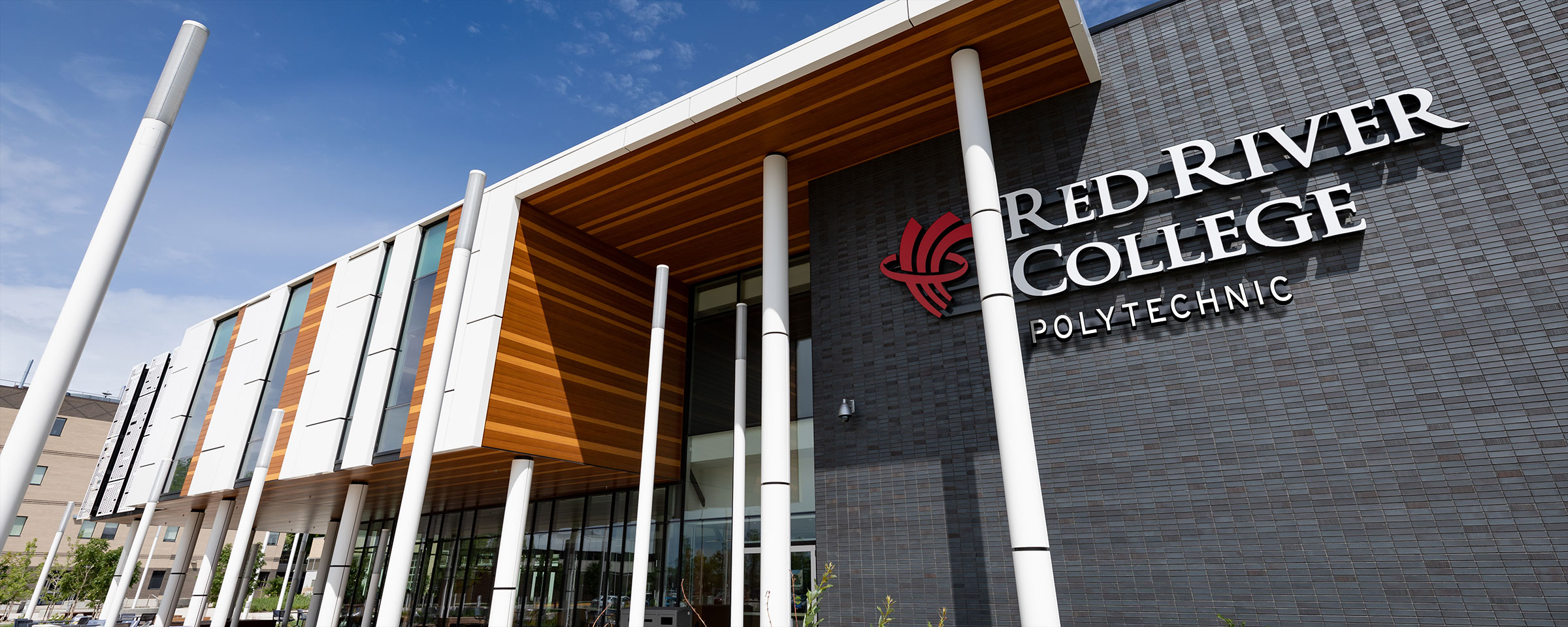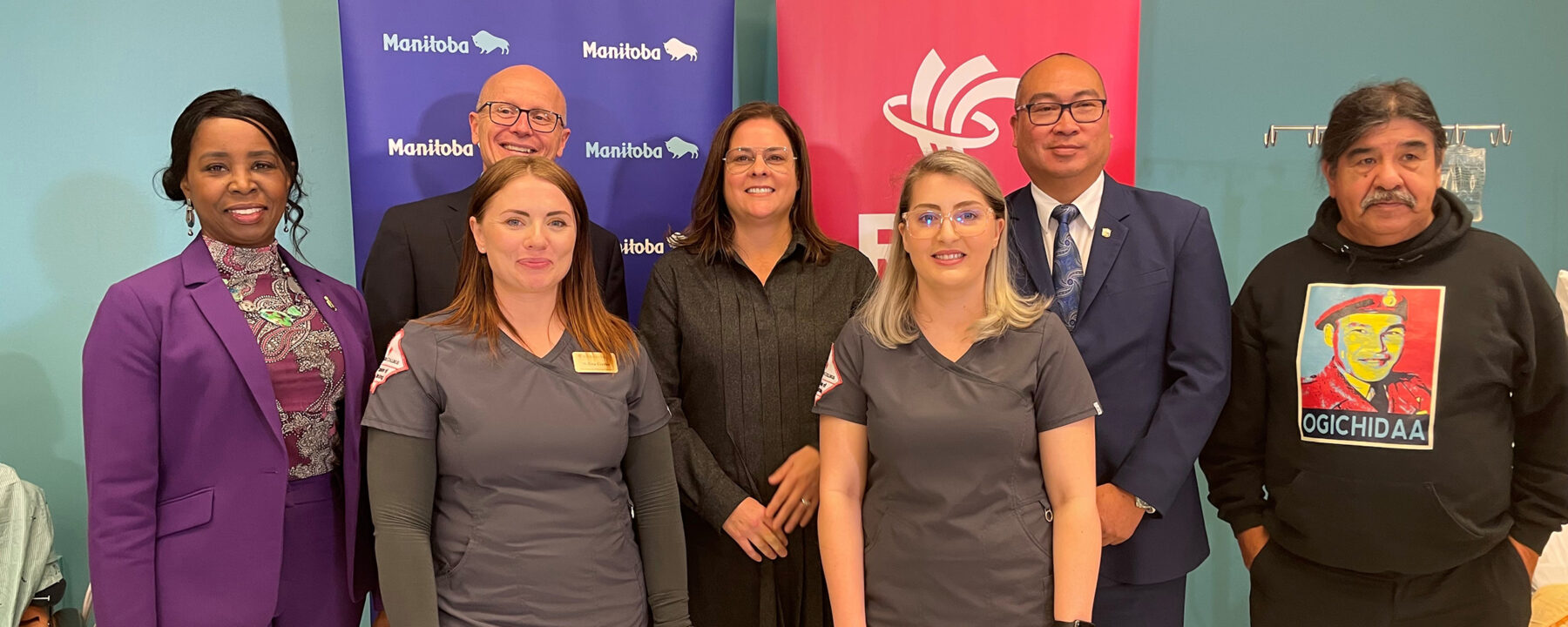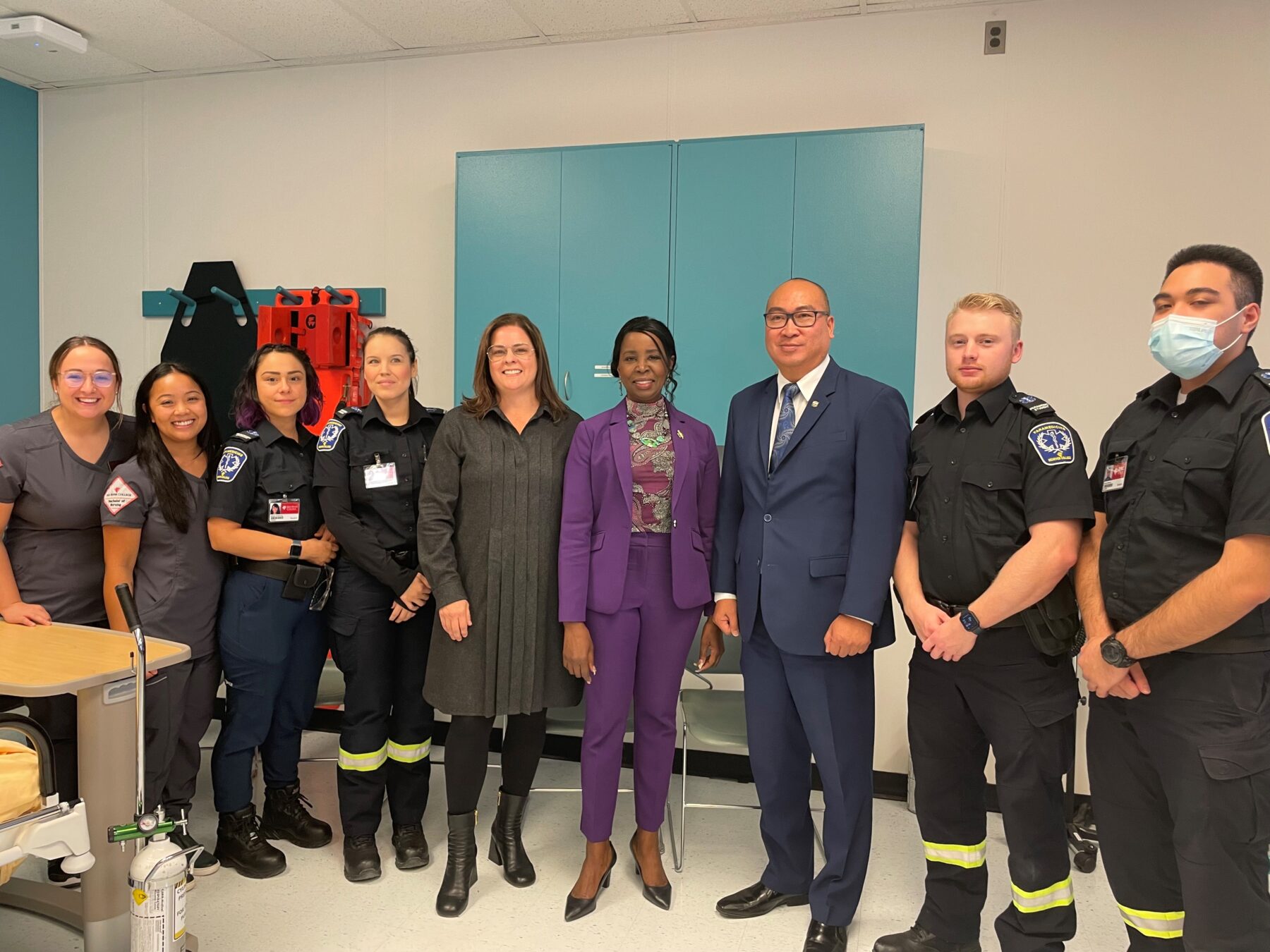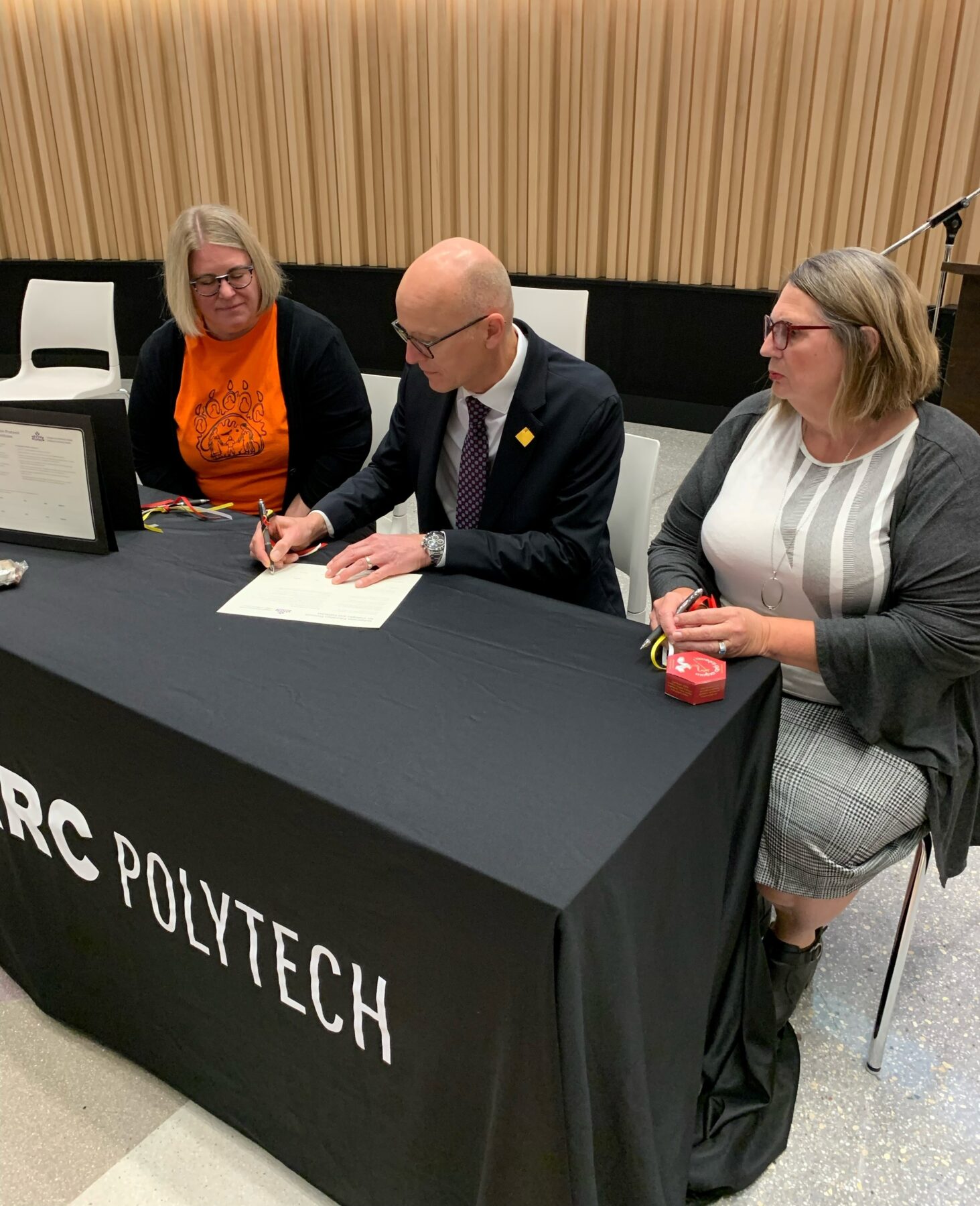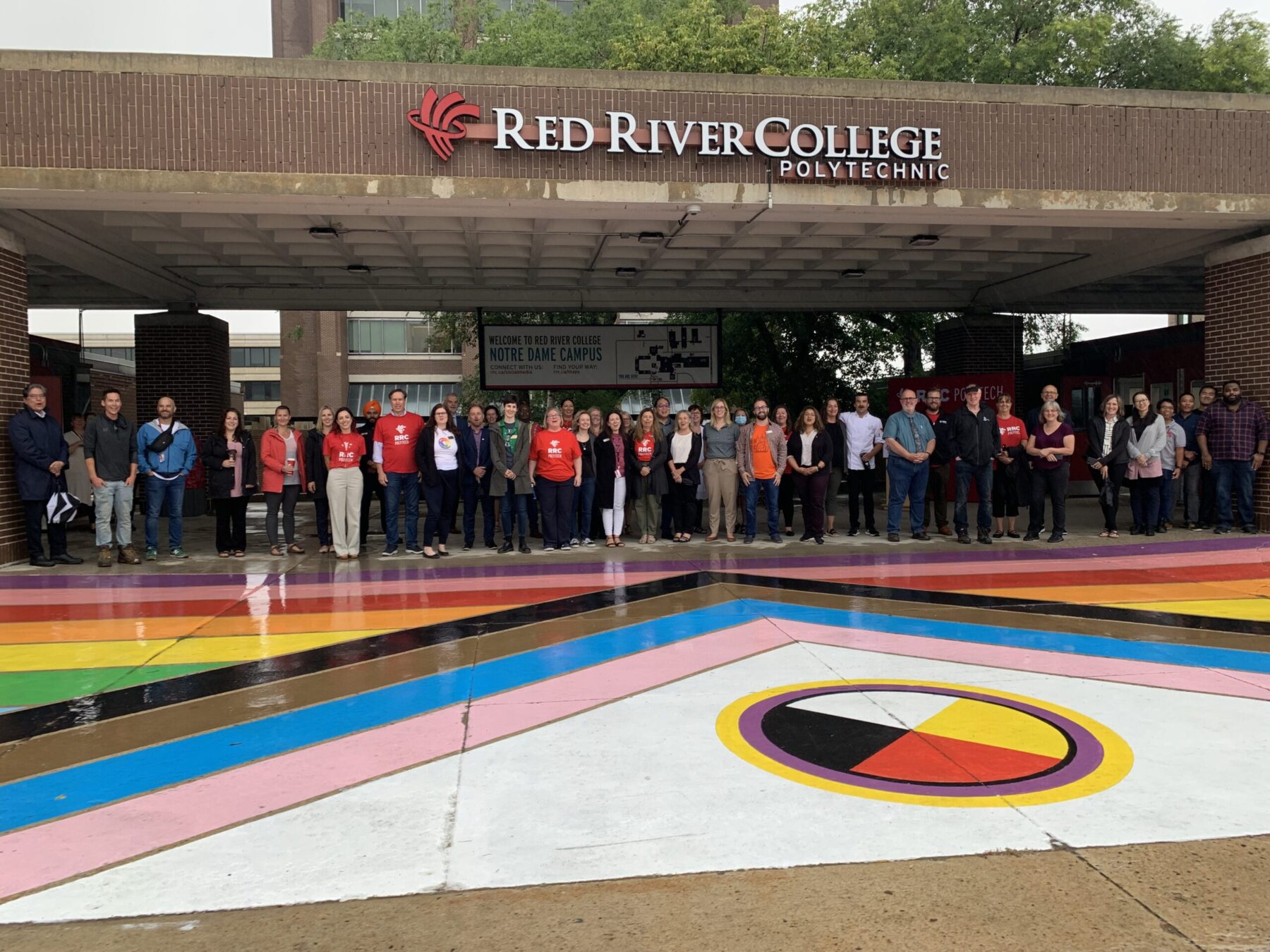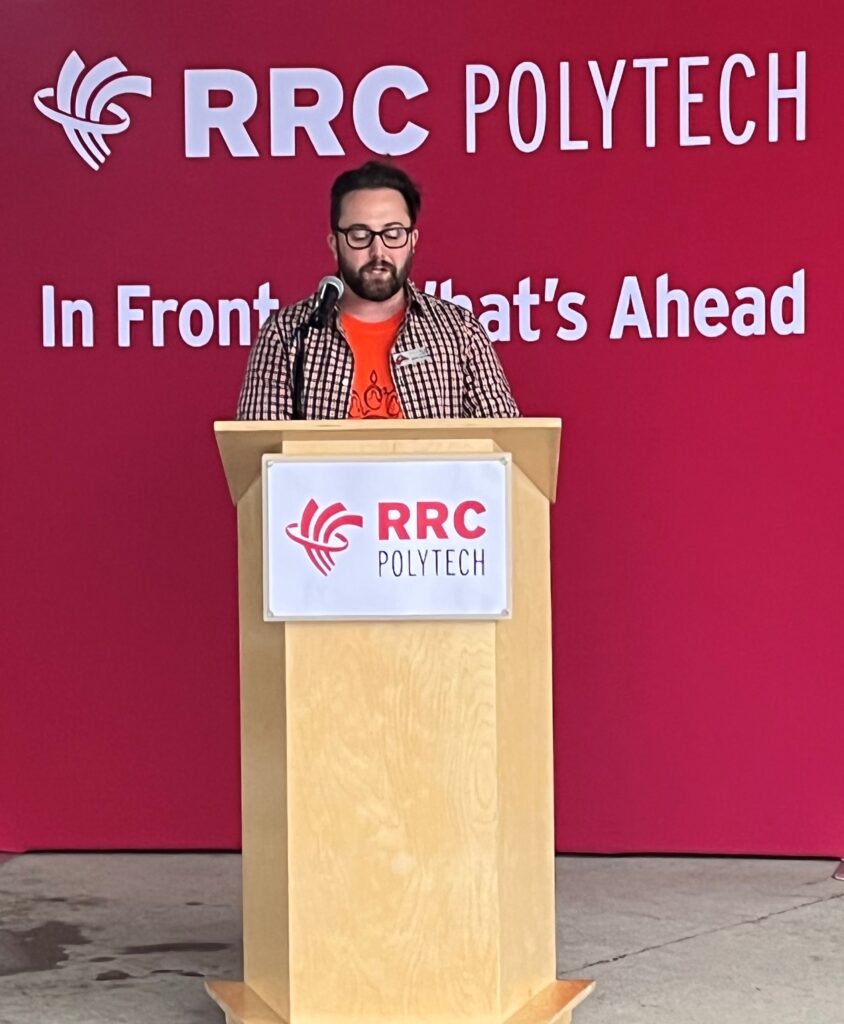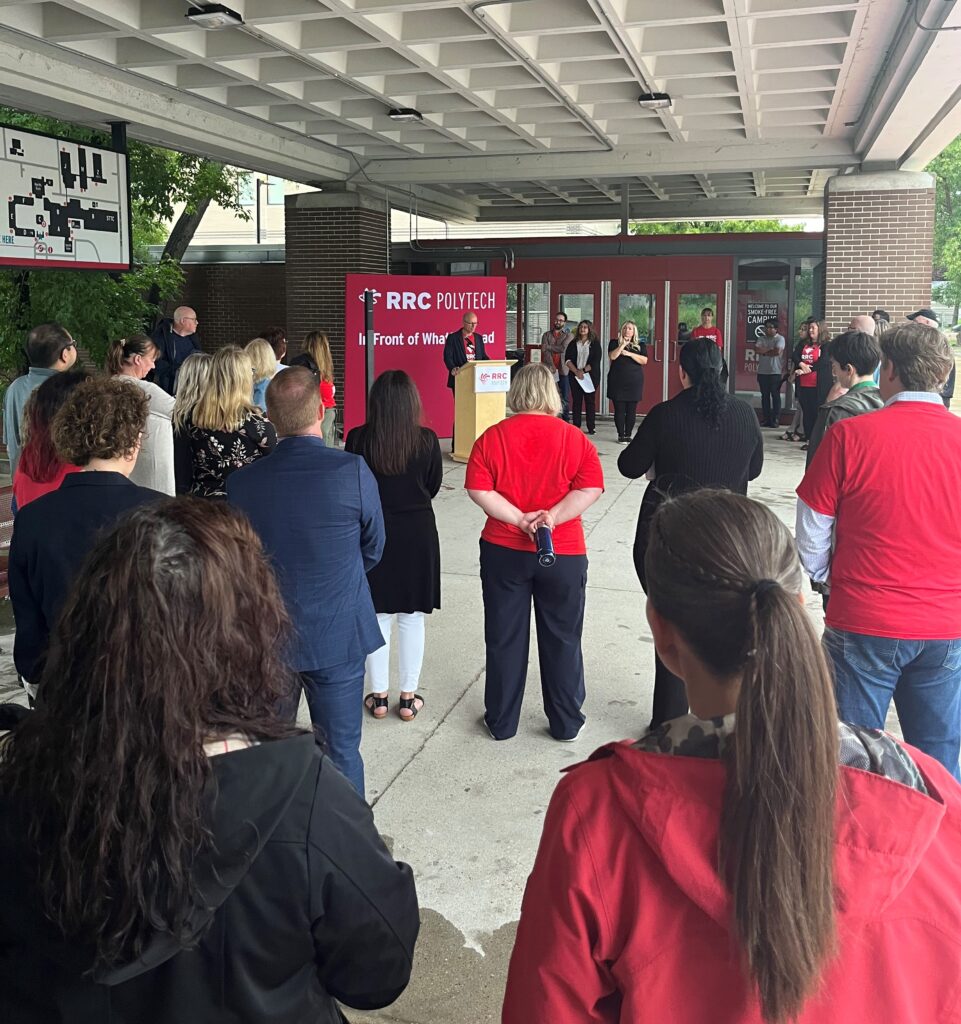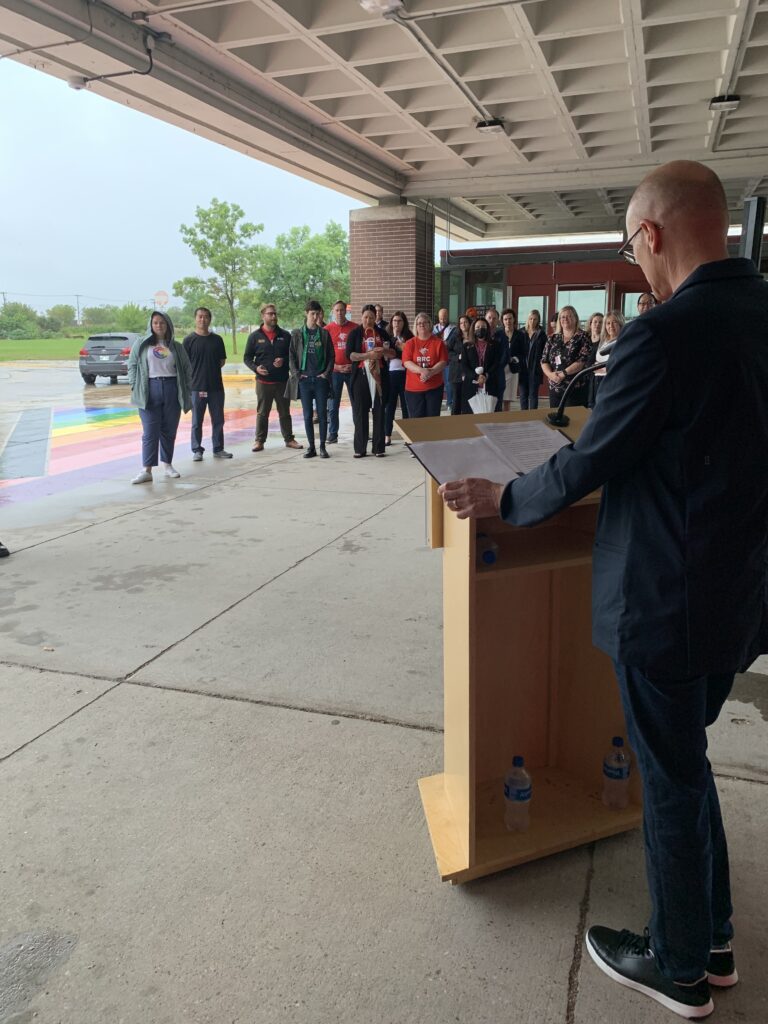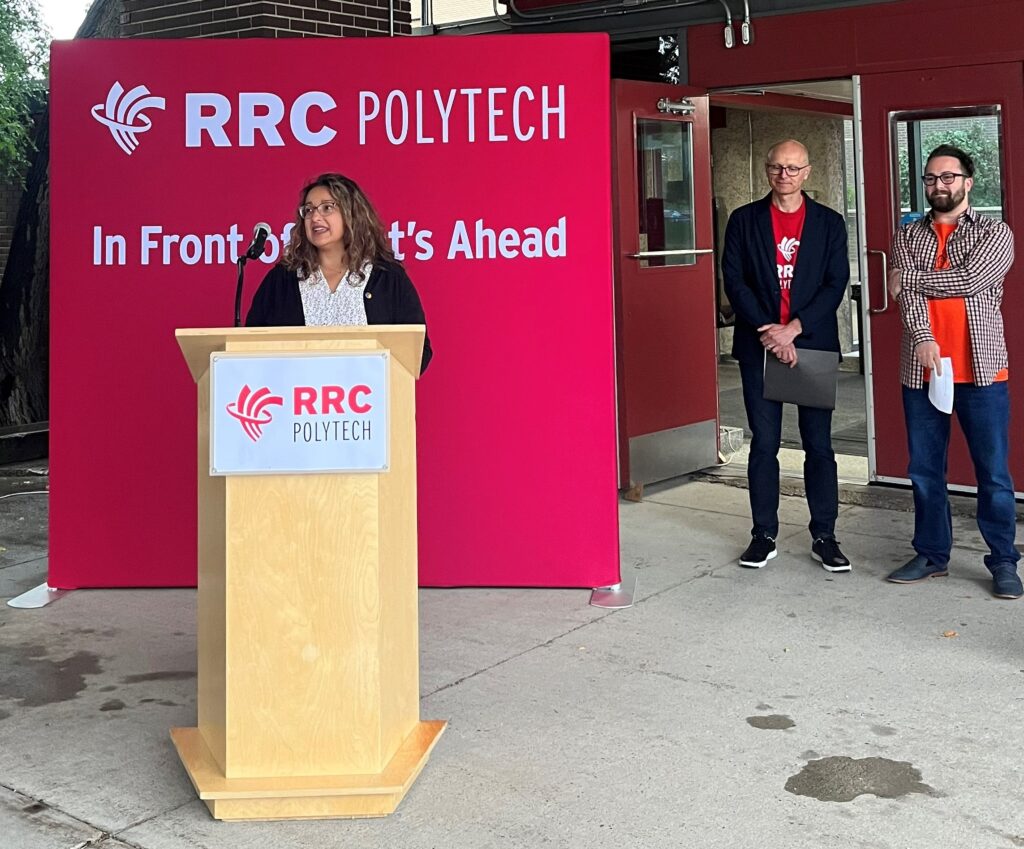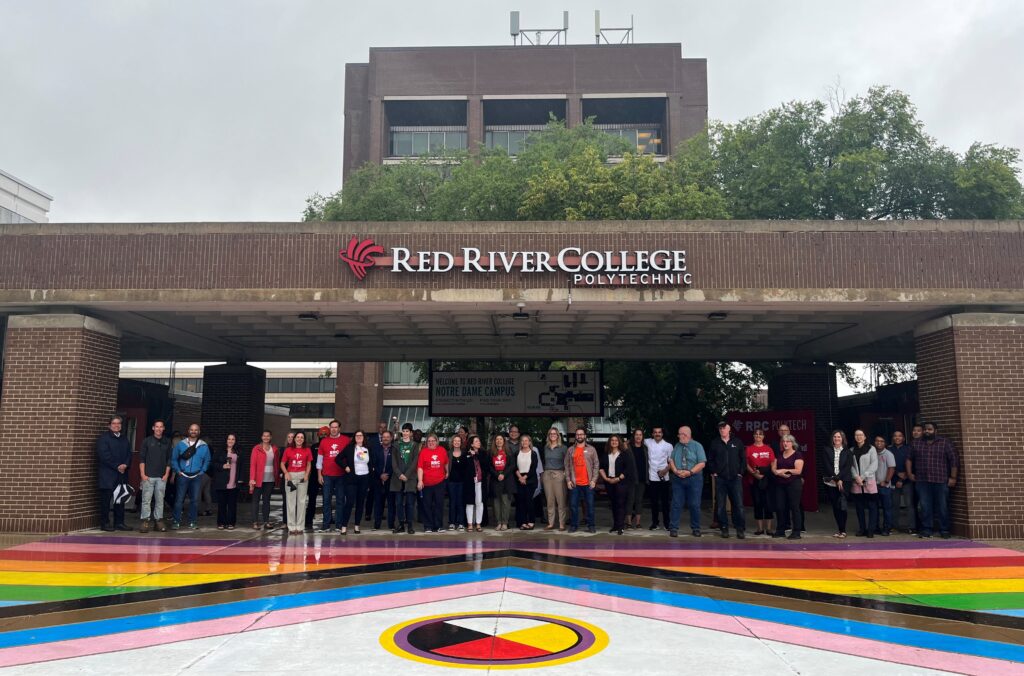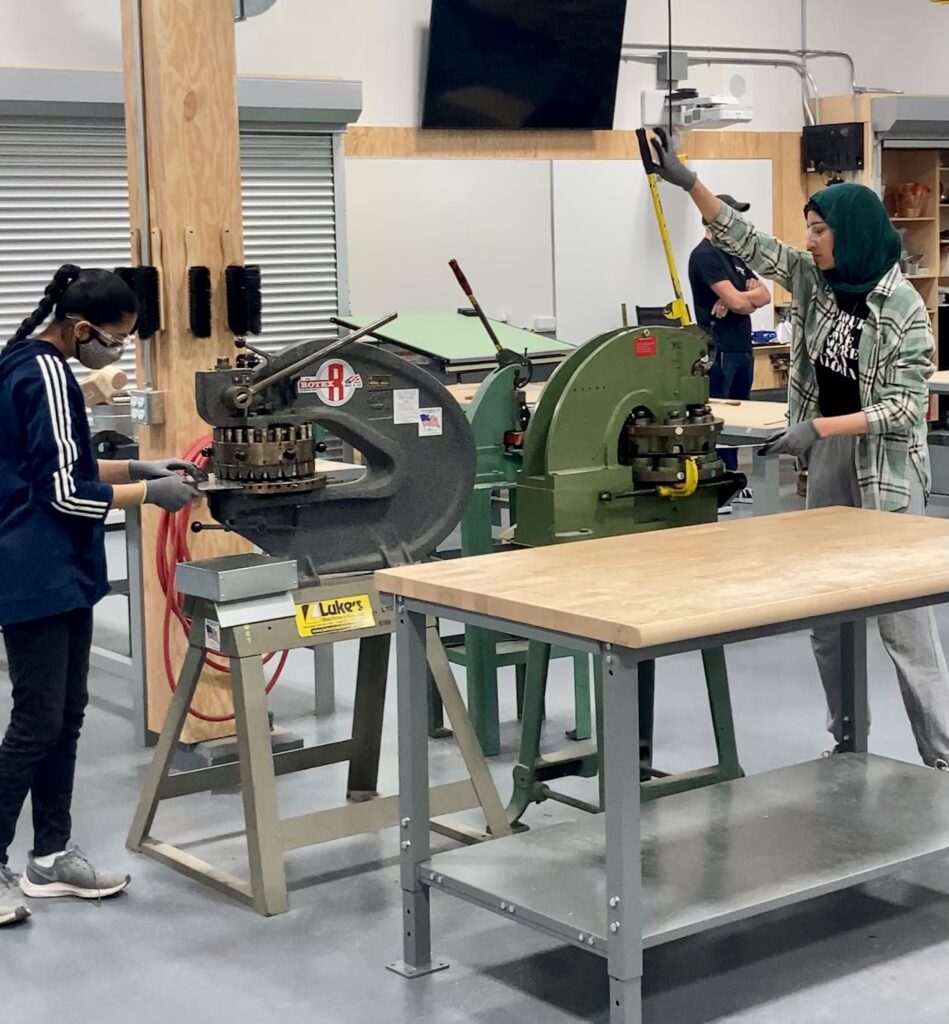Quick Train courses boost RRC Polytech’s contribution to a cleaner economy
Canadian Colleges for a Resilient Recovery members meet with federal Parliamentarians to demonstrate how Canadian institutions are coming together to train workers for the transition to a clean economy

Red River College Polytechnic is meeting with federal Parliamentarians this week to discuss further opportunities for Canada’s colleges, Cégeps and institutions to be the driving force in providing the skills required to transition to a clean economy. The virtual meetings, led by the Canadian Colleges for a Resilient Recovery (C2R2) – a coalition of 14 institutions from across Canada that work together to provide the skills required to transition to a clean economy – build off the success of the recently launched Quick Train Canada initiative.
Quick Train Canada is a series of tuition-free micro-credential courses offered at C2R2 institutes across the country that focus on providing Canadian workers and employers with options to update skills quickly through multi-week, virtual and in-person learning designed to boost job security and participation as the economy transitions to more sustainable practices.
“RRC Polytech’s six Quick Train courses filled up within the first week of being launched, which shows there’s a demonstrated need for learners to quickly and easily bolster their portfolios with relevant skills that will contribute to a greener economy,” says Fred Meier, President and CEO, RRC Polytech.
“RRC Polytech and C2R2 members across Canada are positioned to quickly develop thousands of training and applied research opportunities to help Canadians access new careers, support the transition to a low-carbon economy, and foster equity, diversity, and inclusion.”
Each C2R2 institution offers Quick Train courses relevant to their areas of expertise. All courses are tuition-free, and many are offered virtually so anyone in Canada can access them.
RRC Polytech’s Quick Train courses focus on Clean Tech:
- Introduction to Electric Vehicle Technology
- Electric Vehicle Communication and Computer Systems
- Building Envelope Science: Principles and Practice
and Social Innovation:
- Engagement and Relationship-Building with Indigenous Communities
- Indigenous and Canadian Government Relationships
- and The Consultation Process
The Quick Train micro-credentials RRC Polytech currently offer draw on the College’s strengths in electric vehicle technology and reconciliation with Indigenous communities. Several areas within the College worked together to build academic programming to support the courses’ development.
“The fact that these courses were selected for a Canada-wide audience proves we’re not only local leaders in these areas, but that our work deserves to be showcased on a national scale,” says Meier. “The Quick Train initiative embodies RRC Polytech’s commitment to partnership – not only through cross-country relationships formed through C2R2, but through the inter-departmental efforts that took place here at the College.”
The courses wrapped up their initial runs earlier this spring. Due to high demand – with waitlists as high as 200 people for some courses – RRC Polytech has scheduled additional courses to launch beginning this month.
RRC Polytech and other C2R2 members are currently meetingwith parliamentarians and decision-makers to discuss how the government can further utilize C2R2’s expertise to deliver and implement training and inclusive economic recovery. Existing training opportunities include:
- Rapid training and upskilling through Quick Train Canada – a national curriculum and microcredential delivery platform serving employees and employers across Canada;
- A focus on innovation, research, and advancement with respect to climate action and sustainability to support a low-carbon future; and
- Alignment with employer needs, industry partnerships, work placement opportunities and community relationships.
The C2R2 ecosystem is agile, working with its 14 partner institutions and 14 industry partners coast to coast to coast to seek expert advice, implement best practices, and rapidly address current trends, concerns, and needs arising in Canadian communities and industries.
“C2R2 is positioned to be a leader in Canada’s evolving ecosystem and play the critical support role needed for true success as we plan for the future,” says Meier. “We are proud to be members of C2R2 and to contribute to this important work to benefit workers and industries across our country.
For more information, visit rrc.ca/quicktrain or resilientcolleges.ca.
